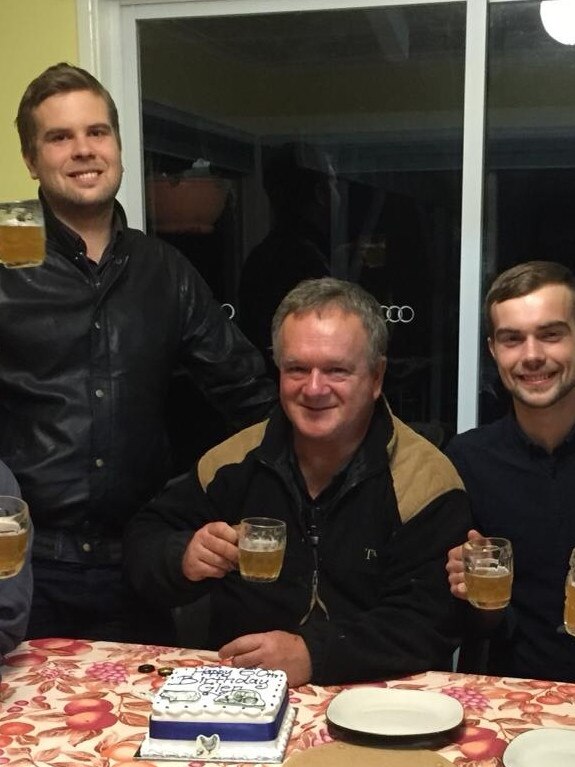Tasmanian brothers left heartbroken after being denied chance to see their dying father
A Tasmanian family has spoken of their heartbreak at not being able to visit their gravely ill father during his final days, saying the state’s border rules are lacking compassion. FULL STORY >>
Tasmania
Don't miss out on the headlines from Tasmania. Followed categories will be added to My News.
FOUR brothers have been left heartbroken after being denied the chance to see their dying father in Tasmania in his final days, and they say the state’s tough border rules are lacking in compassion.
Sean and Fergus Prien repeatedly had their applications to enter Tasmania from Victoria on compassionate grounds rejected, stopping them from visiting their gravely ill dad.
Meanwhile their two siblings, who asked not to be named, either had their applications to enter the state rejected multiple times or their applications were approved too late for them to be by his side.
>> OUR SAY: Harsh call lacks compassion for grieving family
Launceston’s Glen Prien died in the palliative care ward at St Luke’s Hospital on Friday after a battle with stomach cancer, aged 65.
While Tasmania is preparing to fully reopen its borders to vaccinated travellers from December 15, Victoria is currently considered high-risk for Covid-19.
The brothers reside in local government areas that are currently designated as particularly high-risk due to large numbers of virus cases.

A distressed Mr Prien held on for nearly a week in palliative care so he could say farewell to his sons in person, but he died as Tasmanian authorities knocked back his sons’ applications.
Sean said the ruling was “wholly uncompassionate”.
“It’s very challenging emotionally,’’ he said.
“I don’t think anyone expects they won’t be able to be there for such an important moment.”
But they had provided required documentation, including proof of double vaccination, a negative Covid-19 test, and a letter from an oncologist to confirm their father’s health status.
They also say they would have been more than willing to comply with any other restrictions after they arrived in Tasmania, if it meant they could have seen their father.
The second rejection came the day before Mr Prien died.
The family also contacted the Tasmanian Premier’s office to lobby its case and were told they would be contacted, but they say no call came.
“They concluded the only possible solution was to change our local government areas for 14 days before travel and if we could prove we changed our address, then maybe we could,’’ Sean said.
“We were reminding them that he had hours to live.”

Fergus said the tragic set of circumstances meant he was forced to say goodbye to his father over Zoom.
“It was heartbreaking. He nearly died at the beginning of the week and really held on all week and was really distressed, asking about us,’’ he said.
“I didn’t know it was my farewell at the time, but I spent some time with him on Zoom, spoke with him and thanked him and told him I was very proud of him and how he’s holding on for all of us.
“The main thing I wanted to get across is gratitude and how much I love him.”
The brothers are now pleading with authorities to reconsider their applications to allow them to say goodbye to their dad at his funeral later this month.
“I’m very hopeful we could get to the funeral,’’ Fergus said.
“It’s been a pretty traumatic experience for family and we wouldn’t want anyone else to go through that.”

Tasmania Police Acting Assistant Commissioner Robert Blackwood acknowledged the challenging circumstances, and said authorities were assessing similar cases daily.
“Unfortunately two of the brothers reside in Local Government Areas (LGAs) which have been deemed non-permissible and as a result, no entry into Tasmania from these areas is currently allowed,’’ he said.
“People seeking to be considered for travel from these LGAs need to be 14 days clear of residing in those affected areas.
“Unfortunately the LGAs are of such a high risk with high infection rates, and people travelling from these areas create a significant risk to Tasmania as our normal risk mitigation strategies are not enough to keep COVID out of Tasmania.”





